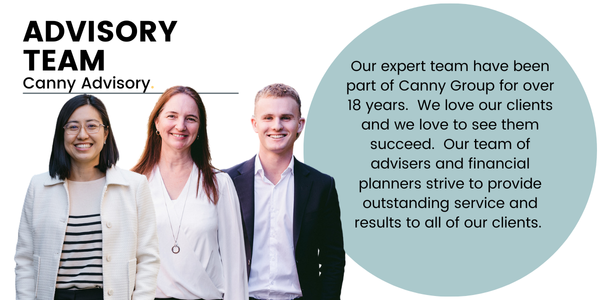Surplus Income Investing: Sustainable + Ethical
Written by: Advisory Team
A change is underway in the world of investing.
The goal of investing to maximise profit is giving way to a different approach, where investors seek to use their money as a force for good.
This shift is sweeping across Australia, changing our attitude towards investing. The data speaks for itself with 88% of Australians expecting their money to be invested responsibly. This isn’t simply a flash in the pan, but a recognition of the power that sustainable and ethical investing has in shaping our world.
As we attempt to deal with various challenges such as climate change or social inequality, investors are beginning to wake up to the impact that their own investment choices can make.
Financial Goals: Decoding Sustainable + Ethical Investments
The world of sustainable and ethical investments may seem complicated.
It involves a broad spectrum, from simple screening measures such as avoiding tobacco and fossil fuels, to investing in companies that are having a positive impact on the world.
Environmental, Social, and Governance (ESG) criteria have been developed to help investors navigate their way through this complexity. For the Australian investor, this new world of sustainable and ethical investing offers many opportunities. Superannuation funds now offer ethical options, and there are a range of ethical managed funds and EFTs to choose from.
The key to navigating all of this lies in recognising that ethical investing is not a one-size-fits-all solution. Instead, ethical investing needs to be tailored to fit your own unique values and financial goals.
Want to know more about investing, specifically in retirement? Check out this previous blog we put together: Should I Continue To Invest During Retirement?
Financial Advice + Navigating The Ethical Investment Landscape
Determining the source of an ethical investment is not as straightforward as it may seem. It’s not enough to simply take a funds marketing claims at face value – the rise of “greenwashing” means investors need to do their due diligence and complete further research.
Start by examining a fund’s prospectus or an individual company’s sustainability report. Look for concrete policies and measurable outcomes rather than vague promises that may be misleading. However, it’s crucial to remember that sustainability is often a wide spectrum. Some may be satisfied with companies making genuine efforts towards improvement, whilst others may demand nothing short of ethical excellence.
Tools like the RIAA’s Responsible Returns website serve as a compass, helping to align your personal values with suitable investments. A financial adviser can help you determine which investments suit your values and investment preferences. The goal is to develop an approach that aligns with your personal beliefs and financial objectives.
Investment Management: Performance + Perspective in Ethical Investing
A common misconception about sustainable and ethical investing is that it involves sacrificing your investment returns. However, research suggests that this may not necessarily be the case.
The RIAA’s 2022 benchmark report found that responsible investment funds have generally performed on par with or better than mainstream funds over various time horizons. This should come as no surprise, for companies that embrace robust ESG practices may be better placed to navigate future challenges and take advantage of emerging opportunities. However, it’s important to maintain perspective.
Not all traditional investments are unethical, and many companies outside the sustainable sphere may still contribute positively to society through job creation, innovation, or other means. Ethical investing should be viewed not as a struggle between good and bad, but rather as an expansion of options for investors.
As with any investment strategy, diversification remains an important consideration when constructing a portfolio. A balanced approach might involve allocating a portion of your portfolio to explicitly ethical or sustainable investments, whilst maintaining broader market exposure with diversified managed funds. Ultimately, the key lies in developing an investment strategy that achieves a balance between your own personal values and your financial objectives.
The Value of Professional Guidance in Ethical Investing
Whilst the world of sustainable and ethical investing offers exciting opportunities, it also presents challenges that can be hard for individual investors to navigate themselves. This is where seeking advice from a qualified financial adviser at Canny Group can help. Our financial advisers are experienced in sustainable and ethical investing and can provide invaluable insights to help you align your investment strategy with ethical values and financial goals.
A financial adviser can help you in several ways. Firstly, they act as a guide, helping you reflect upon and define your own ethical priorities. They’ll ask you questions such as “What matters most to you when it comes to sustainable and ethical investing?” and “Is it environmental sustainability, social justice, corporate governance, or a combination of these that resonate with you?” An adviser will help you through this process, ensuring that your investment choices reflect your own personal values and beliefs.
Furthermore, a financial adviser has access to a range of comprehensive research and screening tools that can help identify investments that meet your ethical criteria. They can help you to dig deeper into potential investment options, helping you to avoid potential greenwashing and ensuring that your investment choices align with your personal objectives.
A financial adviser can also help you to strike a balance between your ethical considerations and the investment realities of risk, return, and long-term financial planning. They will work with you to construct a portfolio that is diversified and that addresses your ethical concerns and priorities without compromising on fundamental investment principles.
Lastly, the regulatory landscape surrounding sustainable and ethical investing continues to evolve rapidly. A financial adviser can keep you informed about changes in legislation, reporting requirements of sustainable and ethical fund managers, as well as the best practices when it comes to ethical investing.
Want to know some key deciding factors on if and when a financial adviser is a good option? Check out this previous blog we put together: When Should You Get A Financial Adviser?
Starting Your Savings + Investments Journey with Canny Advisory
It’s important to remember that ethical investing is not simply a process of excluding unethical investments, but rather a proactive approach to investing that seeks to invest your money in a way that aligns with your own personal values and beliefs.
A financial adviser is your collaborator in this sense, helping you to construct an investment portfolio that not only aligns with your personal values, but helps you to achieve your long-term financial objectives.
Get in touch with our team to have a chat about how we can start your ethical investment journey today.





